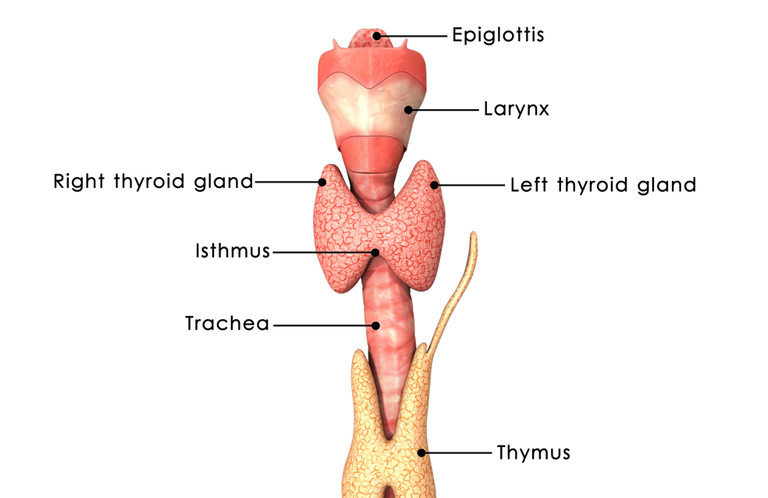Key Points:
- What is the thyroid and what role does it play in the body?
- What are 3 main factors contributing to poor thyroid function
- Diet
- Environmental
- Lifestyle
- How functional medicine tackles thyroid dysfunction differently
- The future of thyroid treatment with the use of functional medicine
Embarking on the journey of functional medicine for thyroid health can seem like a daunting task.
The truth is, when it comes to maintaining optimal wellness, one of the most common hurdles people face is understanding and managing their thyroid health.
Navigating through traditional medical approaches often leaves them feeling overwhelmed and underwhelmed at the same time. They seek something more comprehensive, more personalized – that doesn’t just put a band-aid on symptoms and send them on their way with medication.
In turn, many seek a functional medicine approach to thyroid dysfunction that works to treat the whole person – not just the symptoms.
In order to understand the difference between a functional medicine and conventional approach to thyroid health, we must first understand the role that the thyroid plays in our day to day lives.
Understanding the Thyroid
The thyroid gland plays a crucial role in the human body as it is responsible for producing and regulating thyroid hormones. These hormones, specifically thyroxine (T4) and triiodothyronine (T3), have a widespread impact on various physiological processes, affecting metabolism, growth, and development.

The gland is located in the front of the neck and is a part of the endocrine system. It receives signals from the hypothalamus and pituitary gland in a feedback loop known as the hypothalamic-pituitary-thyroid (HPT) axis.
The pituitary gland has a significant part to play when it comes to how well your thyroid works. It produces TSH (thyroid-stimulating hormone), which prompts your gland to make more or less depending on what’s needed for optimal health.
An imbalance can lead not only to physical discomforts like hair loss, slow heart rate, etc. But can also lead to mental distress as well with depression due to underactive thyroids especially amongst women due to its prevalence post-menopause.
The thyroid gland plays a vital role in maintaining the body’s metabolism, growth, and development by producing and regulating thyroid hormones, which impact numerous physiological processes throughout life.
Current studies indicate that more than 12% of the U.S. population will develop some form of thyroid condition during their lifetime.
In order to understand thyroid conditions better and find effective ways for management lets dive deeper into various factors influencing overall wellness including diet, environmental contributors, and lifestyle habits.
The Importance of Diet for Optimizing Thyroid Function
The significance of nutrition for preserving thyroid health cannot be overstated. Micronutrients such as iodine, iron, selenium and zinc play a crucial part in the production of thyroid hormones. Ensuring adequate intake of micronutrients is essential for proper functioning of the thyroid gland.
Apart from micronutrients, omega-3 fatty acids are also critical for proper immune system functioning, especially in the case of autoimmune thyroid disease. This is especially important if you’re dealing with autoimmune thyroid disease.
However, not all foods are beneficial for your thyroid functions. why it’s so crucial to work directly with your functional medicine practitioner to determine the best diet for regulating your thyroid hormones and function.
Environmental Factors that Directly Impact Thyroid Health
Your thyroid gland plays a crucial role in your body’s overall functioning, producing essential hormones that regulate metabolism. Nevertheless, certain elements in the environment can interfere with this vital process.
Research has shown that endocrine disruptors such as phthalates, heavy metals, particulate matter, pesticides and EDCs like bisphenol A (BPA) can have detrimental effects on the thyroid gland functioning.
This is because these substances mimic or interfere with our bodies’ natural hormone production processes. They affect how the thyroid works by disrupting normal hormonal signals or blocking their pathways – leading to issues ranging from subclinical hypothyroidism to autoimmune disorders like Hashimoto’s thyroiditis.
The Interplay Between Stress, Chronic Inflammation, and Thyroid Health
From family life, to work, to finances, and everything in between, today’s world is full of daily stressors. It’s no surprise that we have such high levels of thyroid dysfunction in conjunction with the dietary and environmental factors playing against us.
Constant tension can have a major effect on thyroid health. When the body is under constant strain, it produces cortisol to help manage this pressure.
Research shows that elevated levels of cortisol can interfere with thyroid hormone synthesis and transport – crucial processes for maintaining optimal thyroid function. The same study also shows that a higher level of negative stressful events may even be a direct risk factor for the diagnosis of Grave’s Disease.
A Functional Medicine Approach to Thyroid Disorders
A functional medicine approach uses lifestyle changes to help manage these underlying issues affecting our overall wellness – and specifically, our delicate thyroid health. The functional medicine approach takes into account the whole person, analyzing diet, lifestyle, and environmental factors to determine the best treatment course for the individual. At Michigan Health and Wellness, our functional medicine approach to thyroid dysfunction includes:
- A comprehensive evaluation of previous lab work and current symptoms
- An extensive examination of lifestyle factors, nutrition, and environmental factors that may be compounding your symptoms
- A thorough thyroid exam and additional diagnostics including blood tests, food sensitivities, stool tests, mold tests, and urinalysis
- A comprehensive treatment plan, developed specifically to your needs by our team to put on the path towards healing
In addition to our evaluations, we’ll go over some ways you can begin to manage your thyroid disorder at home, including making significant lifestyle changes. Below are a few common areas where you can begin to lower your toxin load, optimize your thyroid function, and improve overall health.
- Reducing Exposure to Toxins in Personal Care Products
The chemicals found in many personal care products may disrupt the endocrine system, affecting how the thyroid works. To minimize exposure, opt for natural or organic alternatives whenever possible. This simple switch could potentially alleviate some symptoms of a low-functioning thyroid.
To learn more about how you can reduce your exposure to heavy metals and other toxins check out the blog here.
- Stress Management Strategies
Prolonged stress leads to chronic inflammation which impacts hormone synthesis by stimulating cortisol production from adrenal glands. Chronic stress has been linked with various thyroid issues, including Hashimoto’s disease and Graves’ disease. Incorporating regular exercise into your routine is one effective way to manage stress levels while also boosting immune system function – crucial when dealing with autoimmune thyroid diseases like Hashimoto’s Thyroiditis.
- Gut Health Optimization
Your gut plays an essential role in nutrient absorption necessary for proper hormone synthesis. A healthy diet rich in omega- fatty acids not only supports digestive health but also aids regulation of metabolism – a primary function of the thyroid gland. As a part of a functional medicine care plan we may recommend probiotics, fermented foods or even certain dietary supplements.
- Functional Therapies
At Michigan Health and Wellness, we offer a wide range of therapies to help support thyroid function. These include but aren’t limited to: Hyperbaric Oxygen Chamber Therapy, Theta Chamber Therapy, and personalized diet and supplement plans.
The Future of Thyroid Health Research
The field of thyroid health research is constantly evolving, with a focus on understanding the complex hormonal interplay involved in various biological processes. Recent studies are exploring how factors like chronic stress and immune system function can influence these processes.
Exciting new treatments for thyroid dysfunction are emerging from this cutting-edge research. Addressing underlying issues such as autoimmune response or inflammation could lead to breakthroughs in managing conditions like Hashimoto’s thyroiditis and subclinical hypothyroidism.
A functional medicine approach plays a crucial role here, offering personalized treatments based on individual patient needs rather than the one-size-fits-all solutions often prescribed by traditional medical practices.
All things considered, the future holds promise when it comes to tackling complicated endocrine system disorders. We are committed to staying on the forefront of these discoveries to help optimize every aspect of your wellbeing.
If you’re ready to see how functional medicine can help you improve and maintain thyroid function and overall health, schedule your FREE consultation at Michigan Health and Wellness here.
Disclaimer: The information provided in our blog posts is for educational and informational purposes only and is not intended as medical advice. While we strive to share knowledge and insights on health-related topics, this content should not be used as a substitute for professional medical advice, diagnosis, or treatment. Always consult with a qualified healthcare professional regarding any medical concerns or decisions related to your health and well-being.



